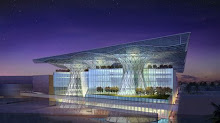My research is to determine how feasible a net zero community is. My goal is to apply this research to a new development being built called, “Copper Fields” located behind Grand Forks, BC. I plan on researching community wide ways of using renewable energy, the cost and pay-off cost involved with these technologies, the benefits and non-benefits, and discovering just how feasible it truly is.
Method:
- Gather information from several different types of sources on renewable energy technology currently available.
- Gather information on the surrounding land for the new community and determine which renewable energy technologies I can use.
- Research how much energy one Canadian home uses on average and apply those statics to the new development.
- Discover how much renewable energy the new development would have to create.
- Using appropriate renewable energy technology, research how costly it would be to meet the energy demand.
- Apply this knowledge and lay out a report which will cover which renewable technologies are usable for the site, how much energy will be required, the cost of meeting those demands, when (if ever) those technologies will pay themselves off, and the overall benefits and non-benefits of having the a net zero community.
Special Problems:
- Can the same techniques be used for different communities, or are communities too different and need to be studied on a case by case basis?
- How far is too far when it comes to creating a net zero community? Where do you draw the line between green design and practicality?
- Are there restrictions set out by the city which will restrict the available options?
- Are there any problems with the sustainability of the material? And are there any safety concerns that should be noted?
Also:
- Who is going to be a primary reader of this report? How much knowledge of this topic will they already have or require?
- What funding options, if any, are available through government?
- What is the average person willing to pay for a house? More specifically are they willing to invest in a more expensive home to be more eco-friendly?
Sources:
- Sustainable Built Environment, Retrieved February 28th, 2009 http://irc.nrc-cnrc.gc.ca/sbe/index_e.html
- Office of Energy Efficiency Retrieved February 28th, 2009 , http://oee.nrcan.gc.ca/english/
- Households and the Environment Survey, Retrieved February 28th, 2009 http://www.statcan.gc.ca/daily-quotidien/090210/dq090210a-eng.htm
- Canada Green Building Council, Retrieved February 28th, 2009 http://www.cagbc.org/
- Hugh Barton (2000) Sustainable Communities: The Potential for Eco-Neighbourhoods
- Ellen Rodger (2008) Building a Green CommunityDaniel D. Chiras (2006) The Homeowner's Guide to Renewable Energy: Achieving Energy Independence Through Solar, Wind, Biomass and Hydropower



Hi Jordan!
ReplyDeleteI lived in Grand Forks until I moved out to Kamloops for school (Summer of 2006)! I haven't heard of Copper Fields, but I could probably help you out if you need to contact anyone from down there.
Just thought I'd put that out there ~
That'd be awesome, thanks man.
ReplyDeletehttp://www.accoya.info/
ReplyDeleteNote to self.
Hey Jordan,
ReplyDeleteI have a book called Energy-Efficient Housing Construction and it deals strictly with construction and energy efficiency in Canadian homes. Let me know if you want to have a look.
Hey Jordan
ReplyDeleteRemember the development that David showed us the other day in 240. I swear that it was on the SFU campus, but no matter how much I look I can't find it.
Maybe you could ask David where it was exactly that this development was. He hasn't posted that classes powerpoint to WebCT yet. He said that they won tons of sustainability awards.
It might be useful to take acloser look at what they did and apply it to your project.
Awesome book meghan, it really had some usefull information in it. Thanks for lending it to me for those couple days.
ReplyDeleteThanks for reminding me about that Nathan, ment to ask David about that after class and totally forgot. Now I'll ask him.
Jordan,
ReplyDeleteI found this article (Zero Energy, Infinite Appeal) about an award winning zero-energy home. There are some great photos and illustrations of the different technologies used. Hopefully it'll help with your report.
You should see if the book Furture Energy is in at the TRU Library. I had it for a while and it covered many types of energy production. It was a good way to figure out which ones to look into further.
ReplyDeleteThanks Kale, there was some pretty good graphics in that article. If you find anymore like that, pass them on, could always use more.
ReplyDeleteThanks Reece, I've been covering alot of current energy uses and forms, but some info on the next gen of energy should be helpful.
Be sure to include the sources of your images on the right.
ReplyDeleteThanks Dale, completely forgot about that.
ReplyDelete